Fall 2025 Courses
Registration is now open! See full registration instructions.
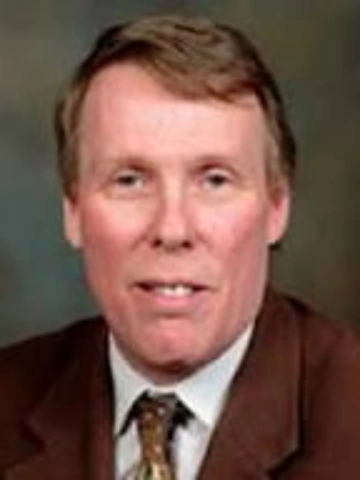
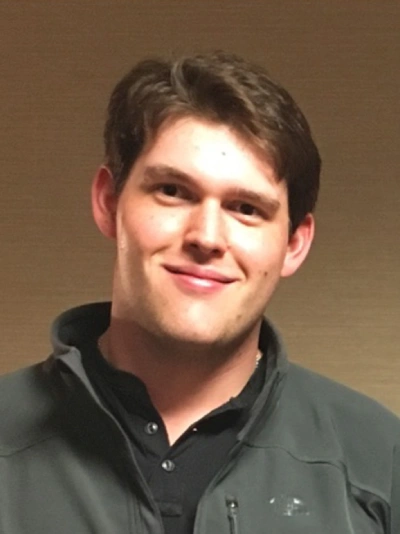 Instructors: Dr. James Fergusson and Nicholas Glesby
Instructors: Dr. James Fergusson and Nicholas Glesby
The post-Cold War era, stretching roughly from 1989 to 2014, was dominated by a single great power or hegemon, the United States. There were many American-led, western military interventions to deal with civil wars, terrorism and regional instability. Since 2014, international politics has been characterized as the return of Great Power competition and rivalries, reminiscent of international politics pre-World War I and/or the Cold War. Current and future conflicts, crises and wars now pose the threat of escalation to a direct military confrontation among the Great Powers, potentially leading to a major war. Climate change, state fragility, internally displaced peoples and revolutions of technology are all threat multipliers to these conflicts. This course examines ongoing and potentially future conflicts and wars to answer the question what next?
Topics covered:
- Introduction: Understanding Conflict and War in the Modern War
- The Russo-Ukrainian War: Causes, and Consequences
- The Middle East: The Impact of the War in Gaza on Regional and Global Stability
- Taiwan and East Asia Flashpoints
- Whither Africa and Latin America
- Summary
- Biographies
Instructor biographies:
Professor James Fergusson is a retired Professor specializing in International Relations and past Director Centre for Defence and Security Studies at the University of Manitoba. He has been commissioned to write several reports for the Department of National Defence and Department of Foreign Affairs.
Nicholas Glesby is a Ph.D. student in the School for the Study of Canada at Trent University, Administrator of the North American and Arctic Defence and Security Network (NAADSN), and Student Fellow at the Centre for Defence and Security Studies at the University of Manitoba. His research interests include Canada-US defence relations and Arctic security.
| Class schedule: | Location: |
| Monday, September 15 | 1:30-3:30 p.m. | Health & RecPlex Multipurpose Room |
| Monday, September 22 | 1:30-3:30 p.m. | Health & RecPlex Multipurpose Room |
| Monday, September 29 | 1:30-3:30 p.m. | Health & RecPlex Multipurpose Room |
| Monday, October 6 | 1:30-3:30 p.m. | Health & RecPlex Multipurpose Room |
| Monday, October 13 | No classes | Thanksgiving |
| Monday, October 20 | 1:30-3:30 p.m. | Health & RecPlex Multipurpose Room |
| Monday, October 27 | 1:30-3:30 p.m. | Health & RecPlex Multipurpose Room |
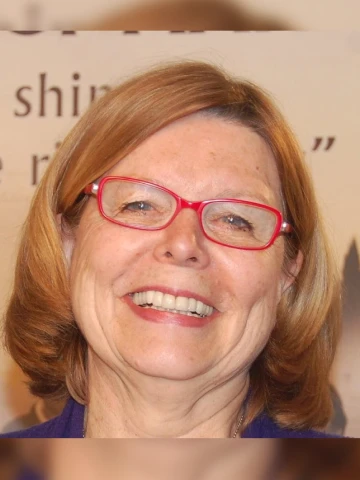
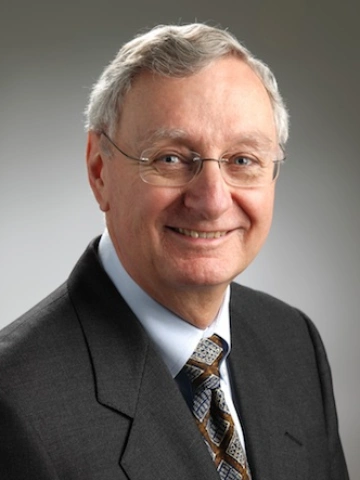 Instructors: Dr. Jean Friesen and Dr. Gerald Friesen
Instructors: Dr. Jean Friesen and Dr. Gerald Friesen
This course will consider the biography and historical context of ten Canadians. The talks will be presented by guest lecturers who have studied closely the individuals and their times. The subjects made their contributions in art, politics, exploration, and social policy. The lecturers will include Pat Bovey, Allan Levine, Esyllt Jones, Gene Walz, Jean Friesen, Gerald Friesen, all of whom have taught and published in Manitoba.
Topics covered include:
- J.S. Woodsworth
- Charlie Thorson
- W.L.M. King
- William Kennedy and family
- John Norquay
- Jean Friesen and Gerry Friesen will have the additional task of knitting the individuals into Manitoba’s history.
Gerald and Jean's guests and their topics will include:
- Kathryn Young – Mary Riter Hamilton, artist
- Roy Loewen – an ex-Manitoban grandfather
- Jerry Storie – Scott Bateman and Frontier Collegiate
- Esyllt Jones – Mindel Cherniack Sheps
- Allen Mills – J S Woodsworth
- Allan Levine – WLM King
- Gene Walz – Charlie Thorson
- Pat Bovey – George Swinton
- Gord Goldsborough – “Memorable Manitobans” website
- Robert Young – Biography
- Jean Friesen – William Kennedy and family
- Gerald Friesen – John Norquay
Instructor biographies:
Jean Friesen (B.A, McGill, PhD UBC) is a retired Associate Professor of history from the University of Manitoba. She has served on the Board of the Manitoba Museum and The Forks Renewal Corporation and chaired the Heritage Council of Manitoba. She represented Wolseley in the Manitoba Legislature 1990-2003 and was appointed Minister of Intergovernmental Affairs and Deputy Premier of Manitoba 1999-2003. She currently serves as a member of the Speakers Bureau of the Treaty Relations Commission of Manitoba.
Gerald Friesen retired more than a decade ago from the Department of History at the University of Manitoba. He has written and edited books and articles, including a history of the Canadian prairies and an essay on the social changes that accompanied revolutions in communication technology. A former president of the Canadian Historical Association, he has lectured frequently in Canada and internationally and has given talks and classes to Manitoba union members and secondary school teachers. His book, The Honourable John Norquay: Indigenous Premier, Canadian Statesmen, published by University of Manitoba Press in April 2024 has received three award wins: the Canadian Historical Association's Clio Prairie Prize, the Manitoba Historical Society's Margaret McWilliams Award for Scholarly History, and the Association for Manitoba Archives' Manitoba Day Award for scholarly works.
| Class schedule: | Location: |
| Wednesday, September 17 | 1:30-3:30 p.m. | Health & RecPlex Multipurpose Room |
| Wednesday, September 24 | 1:30-3:30 p.m. | Health & RecPlex Multipurpose Room |
| Wednesday, October 1 | 1:30-3:30 p.m. | Health & RecPlex Multipurpose Room |
| Wednesday, October 8 | 1:30-3:30 p.m. | Health & RecPlex Multipurpose Room |
| Wednesday, October 15 | No classes | Reading Week |
| Wednesday, October 22 | 1:30-3:30 p.m. | Health & RecPlex Multipurpose Room |
| Wednesday, October 29 | 1:30-3:30 p.m. | Health & RecPlex Multipurpose Room |
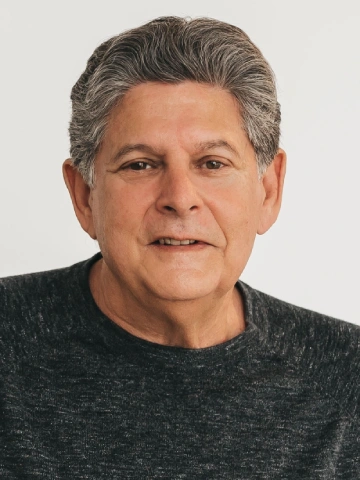
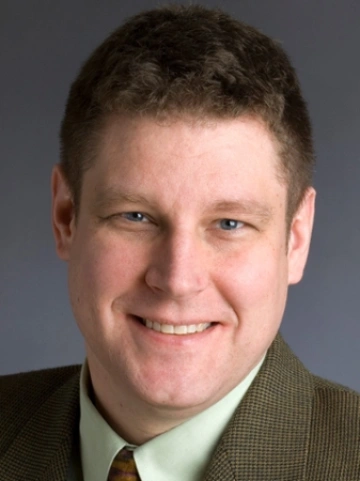 Instructors: Dr. Neil Besner and Colin Russell
Instructors: Dr. Neil Besner and Colin Russell
Part 1: Mavis Gallant – Presented by Dr. Neil Besner
Mavis Gallant is one of the great short story writers of our time.” (Michael Ondaatje) It is widely agreed among readers of Canadian short stories – indeed, among readers of twentieth-century stories written in English anywhere – that Mavis Gallant’s stories are among the finest that we have. Born in Montreal in 1922, Gallant died in Paris, where she lived for well over fifty years, in 2014; her stories, many of them first published in The New Yorker from the early 1950’s forward, were collected in several books of stories, culminating in the volume The Selected Stories of Mavis Gallant, published in 1996. During our three sessions, we will read 6 Gallant stories from across her long career. They will range from stories set in Canada (like those in the 1981 collection Home Truths: Selected Canadian Stories, which won the Governor General’s Award) to stories set in postwar Europe (like the stories in the 1979 collection, From the Fifteenth District: A Novella and Eight Short Stories, her finest book). The stories will include shorter pieces as well as longer stories that are really novellas (like “The Moslem Wife,” which we’ll discuss in our last meeting on October 2). The first session on Thursday September 18 will include an introduction to Gallant; an account of her early career (1944-1950) as a journalist for The Montreal Standard; and an overview of her stories.
Topics covered include:
- Session 1: Introduction (as above); Gallant story, “The Other Paris.”
- Session 2: Three Gallant stories: “When We Were Nearly Young,” “Señor Pinedo,” and “Ernst in Civilian Clothes.”
- Session 3: “In Youth is Pleasure” and “The Moslem Wife”; Conclusions and further reading
Also discussed:
- Gallant’s development of character and her uses of voice;
- Irony, and ambiguity, and style in Gallant’s stories; and
- History and memory in Gallant’s stories.
Materials:
- The Selected Stories of Mavis Gallant (Toronto: McClelland & Stewart, 1996). It’s widely available on Kobo, on Kindle, or in paperback. And/or it can be borrowed from the Winnipeg Public Library.
- It would be very helpful for participants to have the book by early September to allow for reading the first story, “The Other Paris,” by our first session. (And the other stories in time for our second and third discussions.)
Part 2 – Margaret Laurence – Presented by Colin Russell
Margaret Laurence (1926-1987) is one of the best-known and loved authors from Manitoba. Laurence lived in Africa for several years and her early published writing included a novel set in the British colony the Gold Coast as it became the independent nation of Ghana, translations of African poems and stories, and a memoir about her time in Africa. During her sojourn there and in England, Laurence realized she needed to write about her place of origin, and she started to write fiction based on her seminal experience growing up in Neepawa, Manitoba. Neepawa serves as part of the inspiration for the imagined community of Manawaka, the setting of four novels and a collection of stories. We will not read the novels, but I will talk about them and introduce key passages that help establish the themes that Laurence explores, such as the influence in Manitoba of a cultural history settlers brought with them from Britain and other places; interaction with the Indigenous people already present in the land; small town life versus big city life; gender and generational conflict; the search for meaning; and the quest for intellectual and social freedom amidst perceived parochialism.
In the inter-related stories of A Bird in the House, we meet narrator Vanessa MacLeod, an aspiring writer who tells these first-person stories about her childhood and young adulthood in Manawaka. The stories weave together the voice of a young girl discovering the world, with the voice of her older self, recollecting these moments.
Topics covered include:
- Session 4: Laurence’s biography, an early poem about Winnipeg, and the African works. The world of Manawaka and the Manawaka novels: The Stone Angel; A Jest of God; The Fire-Dwellers; The Diviners
- Session 5: Stories “The Mask of the Bear,” “A Bird in the House,” and “The Loons”
- Session 6: Stories “Horses of the Night” and “Jericho’s Brick Battlements,” and conclusions.
Materials:
- We will read several stories from the collection A Bird in the House (McLelland & Stewart, originally published in 1970, various editions since). I would ask that you buy or borrow a copy of that book. It is available on Kindle, Kobo, and paperback. The instructor copy is a Seal/Bantam paperback, 1985 edition.
Instructor biographies:
Neil Besner taught Canadian literature and other subjects (such as the short story and fiction in translation) at the University of Winnipeg from 1987 until his retirement in 2017. He writes mainly on Canadian authors, on the short story, and on the poet Elizabeth Bishop, with books on Mavis Gallant (1988), Alice Munro (1990), an edited collection on Carol Shields (1995), and numerous articles, book chapters, and reviews, as well as co-edited books on the short story in English (1991) and on poetry in English (1997). His prize-winning translation from Portuguese into English of a Brazilian biography of Elizabeth Bishop (2002) was the major source for the 2013 Brazilian feature film, Reaching for the Moon. From 2004 to 2020 he was the general editor of the Laurier Poetry Series (LPS), a contemporary Canadian poetry series with Wilfrid Laurier University Press, with over thirty volumes published to date. His most recent books are the memoir Fishing With Tardelli (2022) and the co-edited Montreal Standard Time: Mavis Gallant’s Early Journalism (2024). His translation from Portuguese into English of a study of Elizabeth Bishop’s work in Brazil is forthcoming (Louisiana State University Press, 2026). He served in several senior administrative roles at UWinnipeg; his last post was as Provost and Vice-President, Academic (2012-17).
Colin Russell is the UW Registrar and has taught for 25 years in the English Department, including for the Winnipeg Education Centre (WEC) inner-city Bachelor of Education Access program. He developed the Department’s courses in literature of Winnipeg and of Manitoba. He holds Bachelor’s degrees in Arts and Education from UW and a Master of Arts in English from the University of Manitoba. Colin is also a classically-trained singer who has performed with CBC Hymn Sing, the Winnipeg Singers, the Winnipeg Philharmonic Choir, Renaissance Voices, and ensembles at the Universities of Winnipeg, Manitoba, London, and Queen Mary College. Colin was born and raised in Rivers, Manitoba, a town not far from Neepawa on the map, and not far from Manawaka in the imagination.
| Class schedule: | Location: |
| Thursday, September 18 | 1:30-3:30 p.m. | 3C01 |
| Thursday, September 25 | 1:30-3:30 p.m. | 3C01 |
| Thursday, October 2 | 1:30-3:30 p.m. | 3C01 |
| Thursday, October 9 | 1:30-3:30 p.m. | 3C01 |
| Thursday, October 16 | No classes | Reading week |
| Thursday, October 23 | 1:30-3:30 p.m. | 3C01 |
| Thursday, October 30 | 1:30-3:30 p.m. | 3C01 |
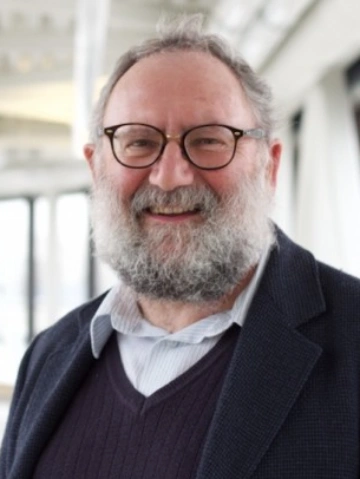 Instructor: Dr. Dietrich Bartel
Instructor: Dr. Dietrich Bartel
History can be read in a myriad of ways, one of which is through the art produced by a community’s artists. In the music of the western European tradition, the concerto can be viewed as one of these history texts. Who were some of its composers? What did they write? How does their music reflect their time?
Topics covered include:
- Concerto Beginnings in the 17th century (Corelli, Op.6) and Vivaldi’s Four Seasons
- Baroque Variations: Bach Brandenburg Concertos
- The Enlightenment and the individual: Haydn Trumpet Concerto; Mozart Piano concerto no. 26
- The Rise of the Hero composer and the celebration of “genius”: Beethoven piano concertos 4 & 5
- “It’s All About Me”: The Lonely Soul and the Virtuoso: Chopin piano Concerto no. 1, Paganini Violin Concerto no. 1
- Postmodernism: Bartok’s Concerto for Orchestra, Stravinsky’s Dumbarton Oaks Concerto for Orchestra, Phillip Glass’s Violin Concerto no. 2 “The American Four Seasons”
Instructor biography:
Professor Emeritus of Music, Dietrich began his teaching career at what is now CMU in 1985. Although his research and writing has focused on the music of the German Baroque, his interests are broad and varied. He is also still an active musician as Music Minister and Organist at All Saints Anglican Church, Winnipeg.
Education: PhD Musicology, Albert-Ludwigs-Universität, Freiburg, Germany (1982); BMus Organ Performance and Musicology, UBC (1975)
| Class schedule: | Location: |
| Monday, November 3 | 1:30-3:30 p.m. | Health & RecPlex Multipurpose Room |
| Monday, November 10 | 1:30-3:30 p.m. | 1M30 |
| Monday, November 17 | 1:30-3:30 p.m. | Health & RecPlex Multipurpose Room |
| Monday, November 24 | 1:30-3:30 p.m. | Health & RecPlex Multipurpose Room |
| Monday, December 1 | 1:30-3:30 p.m. | Health & RecPlex Multipurpose Room |
| Monday, December 8 | 1:30-3:30 p.m. | Health & RecPlex Multipurpose Room |
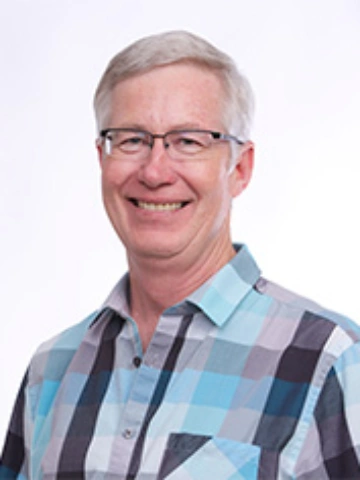
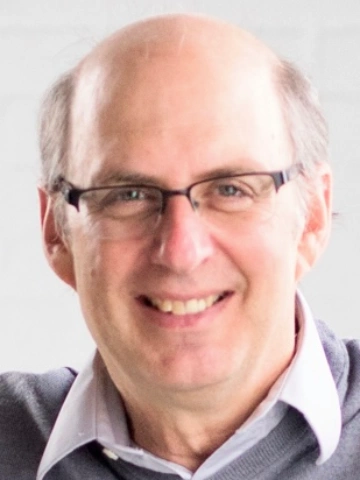
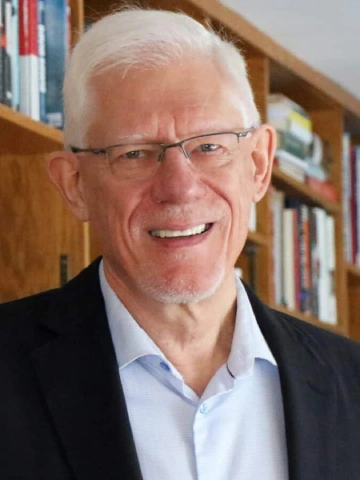 Instructors: Dr. Kent HayGlass, Dr. Bernie Chodirker, and Dr. Michael West (Depts. of Immunology, Pediatrics, Neurosurgery, University of Manitoba)
Instructors: Dr. Kent HayGlass, Dr. Bernie Chodirker, and Dr. Michael West (Depts. of Immunology, Pediatrics, Neurosurgery, University of Manitoba)
From the day your proud parents brought you home in a fluffy pink or blue blanket to today, an unprecedented revolution has taken place in our understanding of human biology, wellness/disease diagnoses and medical treatments. Join us as we share our expertise to provide insight into what changed since you arrived. We will examine the current state of the art and newly emerging knowledge, its benefits, challenges and concerns.
Topics covered include:
- Where did we come from Dad? Early Humans, Neanderthals, Races and Becoming “Us”
- Minimally Invasive Surgery of Brain Cancer and other Brain Pathologies with the Gamma Knife.
- Artificial Intelligence Changes Research and Medical Practice
- Human Genetics and You: What does a Medical Geneticist do?
- From “Boil everything!!” (1950) to “We Add Bacteria to Dinner” (2025): A Journey with Microbes and Us.
Instructor biographies:
Dr. Kent HayGlass: After undergrad at Queen’s, PhD (Immunology) at Western, and Postdoc (Harvard), he held a Faculty position there. Moving to Manitoba (1986), his research aimed to unravel the many ways our immune system is regulated, (usually) choosing correct immune responses from the dozens we have available. He developed and led multiple discovery Immunology research programs in humans and animal models. Training graduate, postdoc, medical and pharmacy students was important to him. He was Dept Head, Director UM’s MD/PhD program and Scientific Director/Research at the Child Health Research Institute of Manitoba.
Dr Bernie Chodirker: Bernie Chodirker is a medical geneticist currently working part time. He initially trained in pediatrics and subsequently in medical genetics at the University of Manitoba. He was the post-graduate education director for Medical Genetics at the University of Manitoba for 17 years. He recently stepped down from his role as the medical director for the Shared Health Genetics and Metabolism program. He is a full professor in the Department of Pediatrics and Child Health and in the department of Biochemistry and Medical Genetics.
Dr Michael West: Michael West received his MD, BSc(Med) and PhD from the University of Manitoba and trained in Neurosurgery in Winnipeg, London (Ont), Chicago and San Francisco. He practiced neurosurgery in Canada and USA and was appointed Professor and Head of Neurosurgery at the U of M and WRHA in 2000. Here he developed a Radiosurgery Program using the Gamma Knife to treat brain pathologies non-invasively; a first for Canada. He has multiple teaching and professional awards, over 100 scientific publications and is a Member of the Order of Manitoba and Order of Canada.
| Class schedule: | Location: |
| Wednesday, November 5 | 1:30-3:30 p.m. | Health & RecPlex Multipurpose Room |
| Wednesday, November 12 | 1:30-3:30 p.m. | 1M30 |
| Wednesday, November 19 | 1:30-3:30 p.m. | Health & RecPlex Multipurpose Room |
| Wednesday, November 26 | 1:30-3:30 p.m. | Health & RecPlex Multipurpose Room |
| Wednesday, December 3 | 1:30-3:30 p.m. | Health & RecPlex Multipurpose Room |
| Wednesday, December 10 | 1:30-3:30 p.m. | Health & RecPlex Multipurpose Room |
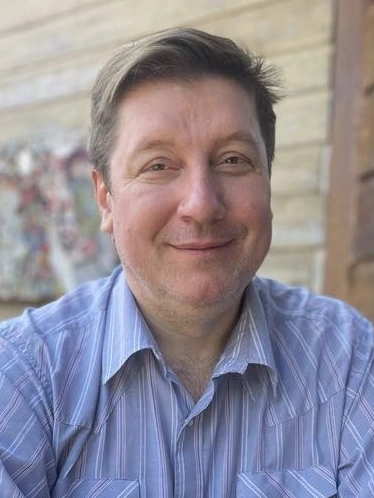 Instructor: Olexandr Shevchenko
Instructor: Olexandr Shevchenko
In 1985, it seems like the bi-polar world we lived in was consolidated once and for all. The Cold War was at one of its coldest moments, the Soviet invasion in Afghanistan was dragging on, both sides were placing more and more short and medium range nuclear missiles in Europe. Some "optimists" considered stashing up on lethal poisons to get it over with in case of a real outbreak of WWIII. Since 1982 aging leaders of the Soviet Union were competing with one another on their one-way race to the cemetery. The death of 73-year-old Konstantin Chernenko in March of 1985 was initially seen as rather insignificant. However, his replacement was not one of the old guards but an active and vigorous 54-year-old Mikhail Gorbachev. He unleashed the processes collectively known as perestroika which in 6 short years resulted in the changes that no one dared to imagine in 1985.
Topics covered include:
- Explore the reasons for the start of Perestroika
- Discuss its impact on the average Soviet resident and the subjects of the Soviet empire
- Address the question of eventual winners and losers from the distance of 40 years
Instructor biography:
Olexandr is a lifelong student and teacher of history. Born in the USSR, he witnessed collapse of the communist Empire first hand. He studied history in Ukraine, Hungary, Germany, the US and Canada and taught in several Universities and community programs. His areas of interest are history of the twentieth century, Ukrainian history, history of Russia, history of Europe and military history. Since 2006 he lives and works in Winnipeg as a freelance historian and interpreter.
| Class schedule: | Location: |
| Thursday, November 6 | 1:30-3:30 p.m. | Health & RecPlex Multipurpose Room |
| Thursday, November 13 | 1:30-3:30 p.m. | 1M30 |
| Thursday, November 20 | 1:30-3:30 p.m. | Health & RecPlex Multipurpose Room |
| Thursday, November 27 | 1:30-3:30 p.m. | Health & RecPlex Multipurpose Room |
| Thursday, December 4 | 1:30-3:30 p.m. | Health & RecPlex Multipurpose Room |
| Thursday, December 11 | 1:30-3:30 p.m. | Health & RecPlex Multipurpose Room |
